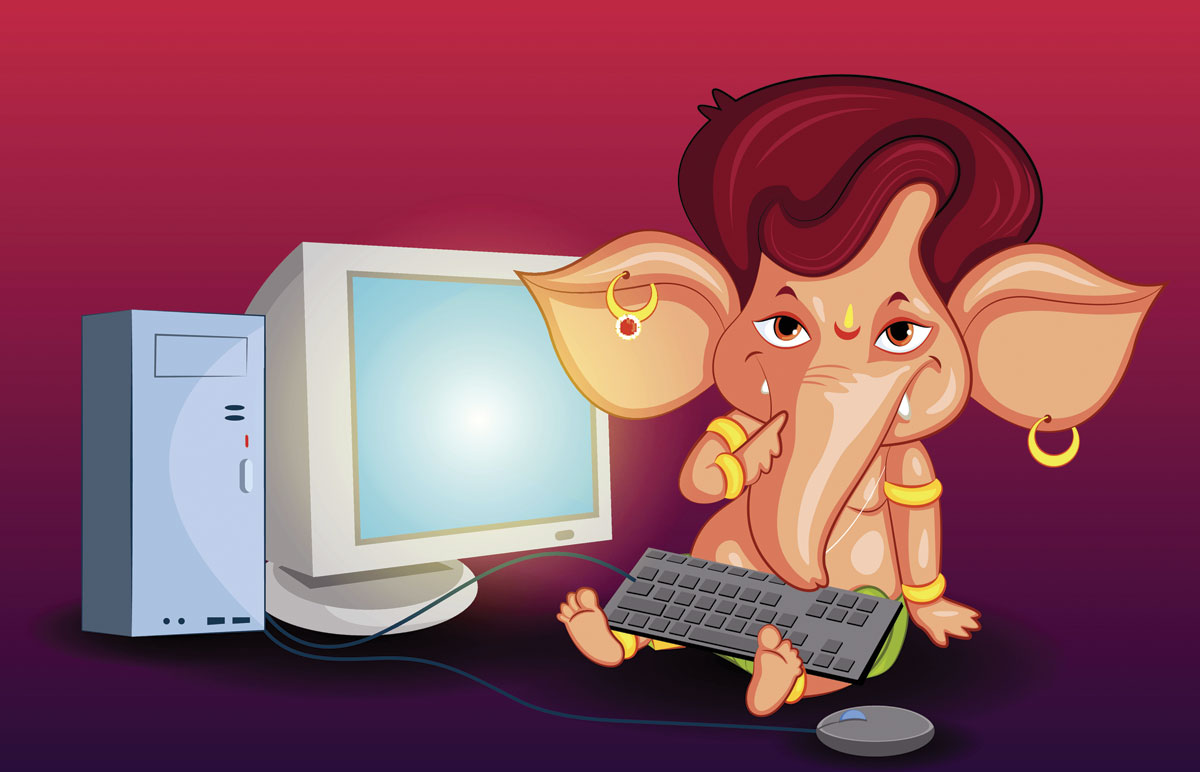‘EPIC RETOLD’ IN A NEW PERSPECTIVE
A UK-based Indian academic, who has retold the ancient Sanskrit epic Mahabharata in a series of tweets, is now preparing for a sequel to the Twitter version, @epicretold, this time from the perspective of its key villain Duryodhana. A Press Trust of India report by Aditi Khanna.
Chindu Sreedharan, a former war reporter-turned-journalism lecturer at Bournemouth University on the south coast of England, began narrating the Indian epic on the micro-blogging site as a digital storytelling experiment in 2009.
The story spanned four years and 2,700 tweets and his efforts were released in December, last year, as India’s first Twitter fiction novel titled Epic Retold.
The 41-year-old author says he is now taking a “breather” before embarking on a sequel to the epic.
With over 100,000 couplets or shlokas, Mahabharata is one of the two epics of Hinduism. It teaches the goal of human life through the tales of a dynastic struggle for power between the Kauravas and the righteous Pandavas.
The sequel to Epic Retold would present the eldest Kaurava brother as an anti-hero and would be shorter than the first version.
“Towards the end of Epic Retold, particularly because of the way certain things have been reimagined, I began to see Duryodhana differently. I could see his point of view. Epic Retold was Bhima’s ‘truth.’ This will be Duryodhana’s,” Sreedharan told PTI.
The final format of the sequel is under discussion with the publisher but it will be a short story rather than a novel and this time the full draft will be ready before he starts tweeting it out.
“Epic Retold was written on Twitter, kind of in real time – so it was quite challenging. I am hoping to catch my breath before I start it [sequel], so it is all still a few months away,” Sreedharan said.
The academic, who has reported on the Kashmir conflict, the Kargil War, and the Maoist People’s War guerrilla movement, was drawn to the Mahabharata due to the conflict at the heart of the warring Kauravas and Pandavas.
The twitter version of the Mahabharata began as an experiment that soon took on a life of its own.
He explains: “This began as an experiment with Twitter, which still continues. It’s a story I have always been fascinated by, something I have grown up with. But also, when I began this experiment I happened to be reading a fascinating retelling of the Mahabharata. So it was the story foremost in my mind.
“When I began seriously thinking about it, I became more convinced that the Mahabharata was a great choice. What I was attempting was fragmented storytelling, a narrative distributed across weeks, months. To keep readers interested across that timespan, I needed a powerful story, a story rife with drama and strong characters and conflict. Mahabharata had all those.
“Also, war narration in the media is one of my research areas and in a rather reductionist way, I had begun to think of the Mahabharata as a war story. So there was that added resonance for me as an academic as well.”
As the story went out from his @epicretold Twitter handle, it lived up to his vision as a timeless and universal epic that would connect with a global audience.
He feels its success lies in the richness of the original Sanskrit poem written over 100,000 couplets and layers of meanings.
The appeal of Mahabharata can be gauged by the fact that when it was first adapted into a television series in the 1980s, streets emptied out during its telecast, with most Indians hooked to their TV sets.
Even today, politicians often invoke the Sanskrit epic during election campaigns to identify themselves as one of the Pandava siblings, while calling their opponents the Duryodhana or his 99 brothers.
“It is a story of heroes. It has stories within stories. It can withstand any number of retellings, it is open to different interpretations – which also makes it very flexible for writers, of all hues, who contribute to keeping it alive across generations, across platforms, across cultures,” said Sreedharan.
As he prepares for his second “experiment” with Twitter fiction, he feels many more such experiments will follow in the digital world.
“It’s part of the trans-media ecology that is developing now. A book doesn’t stay just a book anymore. Neither does a film. They all have digital extensions and digital works, as we are now seeing in the case of Epic Retold, may also end up having conventional, ‘print extensions.’ Twitter is part of all this and authors and publishers are already pushing its boundaries,” he said.


